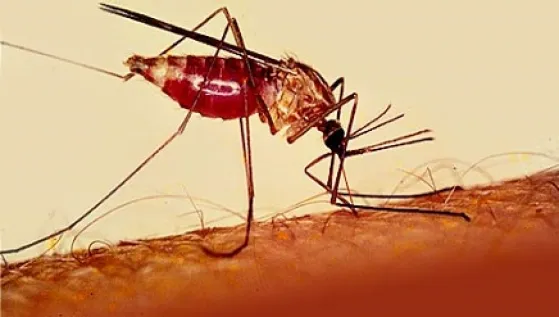The government of the United Kingdom has announced the contribution of about £1 billion to the global fund against malaria and other diseases in Nigeria for the period of 2024 to 2026.
Ms Ebere Anyachukwu, who is the Health Adviser, British High Commission (BHC), made this disclosure on Friday in Abuja.
She pointed out that in commemoration of the World Malaria Day, said government of the UK contributed the money to a global fund that mobilised resources for countries to fight diseases.
According to him, the one billion pounds is added to the funds coming from other donors, to be managed by global fund to tackle malaria and other diseases in Nigeria.
He said it was from that funding that payments for things like insecticide, treated bed nets, diagnostics testing for malaria and also for chemo prevention were made.
“There are some states in Nigeria where malaria is seasonal. Those are states where chemo prevention is used to prevent children from coming down with malaria.
“In those states, malaria spreads in a few months within a year, and during that period, there is a high level of malaria transmission in children, resulting in lots of deaths,” he said.
The health adviser said children in such states were usually given malaria drugs, whether or not they have malaria.
Read Also: Naira Currently Best Performing Currency Globally, CBN Boasts
“These are part of measures by global fund that have significantly reduced the level of sicknesses and deaths in children.”
He said the UK was a big contributor to the global fund, which is currently supporting about 13 states in Nigeria.
He listed the states to include Adamawa, Delta, Gombe, Jigawa, Kaduna, Kano, Katsina, Kwara, Niger, Ogun, Osun, Yobe and Taraba.
“With the global funding support, there has been a significant reduction of malaria related deaths in children in Nigeria.
“In 2008, the World Health Organisation (WHO) estimated that Nigeria had about 221,000 malaria related deaths. But by 2022, the figure was about 189 deaths.
“There is a significant reduction due to the intervention of global fund, even when there was an increase in the nation’s population.
“Lots of lives have been saved over the years because people now have access to health care facilities funded by these interventions,” he said.
Meanwhile, the Federal Ministry of Health has confirmed Nigeria has made significant progress in the fight against malaria in the recent years.
However, it said more collaborative efforts were required to strengthen the fight and achieve the desired improved result in the fight against malaria.
National Coordinator, National Malaria Elimination Programme, Godwin Ntadon, gave the charge in Abuja, yesterday, at an event to mark the 2024 World Malaria Day with the theme: “Accelerating the fight against malaria for a more equitable world.”
He disclosed plans are underway to review and launch new approach to the fight against malaria, adding that the Coordinating Minister of Health and Social Welfare, Ali Pate, partners and several other stakeholders involve in the fight against malaria, would be part of the review to ensure adequate result is achieved.
Country Representative, WHO, Walter Molumbo, who was represented by Alex Chimbaru, deputy country representative, in his remarks, said the theme of the event resonates deeply with the ongoing efforts to combat malaria.
“This year, let us collectively recommit to changing the narrative and ushering in a new era of progress and equity in our battle against malaria.
“Over the years, malaria has disproportionately affected the most vulnerable populations, namely, pregnant women, infants, children under five years of age, refugees, migrants, and internally displaced people, perpetuating cycles of poverty and inequity.
“Climate change and humanitarian emergencies, including natural disasters and conflicts in malaria-endemic countries, are displacing populations, making them vulnerable to the disease. This reduces opportunities for accessing preventive and treatment services by these groups thus hindering progress on achieving the vision of a malaria-free world.”
He insisted the fight against malaria is not just a health issue, but a matter of social justice and human rights.

